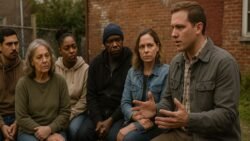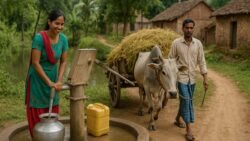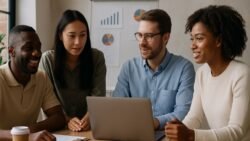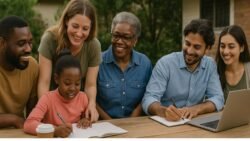Health Education Projects – Empowering communities through dedicated projects in health, education, livelihood, and human rights is central to sustainable development. At whosapp.co.za, the focus is on creating real impact by connecting people with opportunities, knowledge, and support systems that can transform their lives. Health initiatives ensure access to quality medical care and preventive awareness campaigns that reduce disease burdens. Education programs help young learners and adults alike acquire essential skills to compete in the modern world, bridging the digital divide and fostering empowerment. Livelihood initiatives generate economic independence by promoting skills training, entrepreneurship, and access to markets. Human rights advocacy ensures that vulnerable groups have a voice, legal awareness, and protection from exploitation. These integrated approaches align with global development goals such as the United Nations’ Sustainable Development Goals, making local action part of a larger movement for global justice and equality. Together, they form a foundation for inclusive growth, dignity, and long-term resilience for individuals and communities.
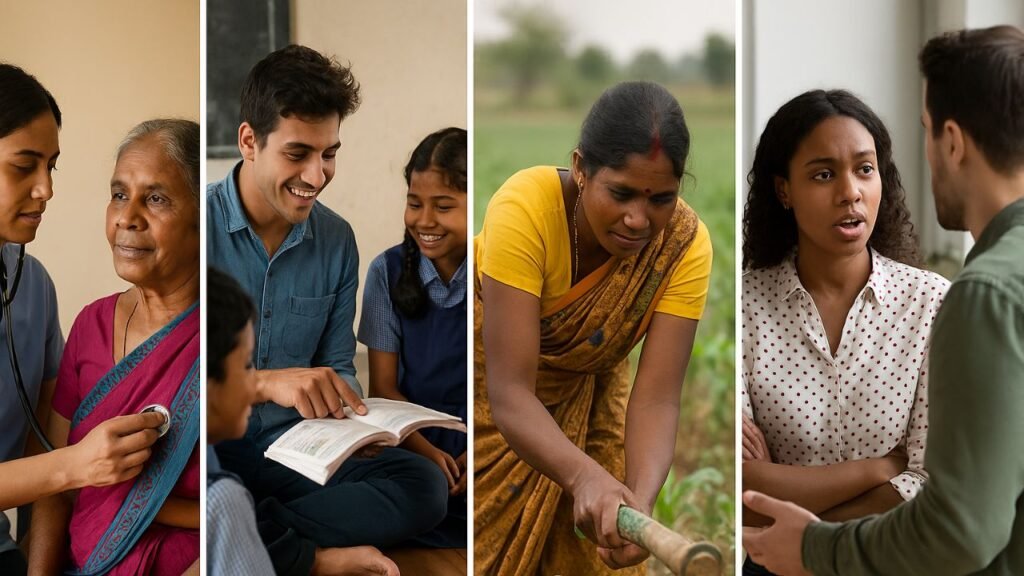
 United Foundation for Development and Peace – Creating Lasting Impact in Vulnerable Communities
United Foundation for Development and Peace – Creating Lasting Impact in Vulnerable Communities
Health Initiatives for Inclusive Well-Being
Health is one of the most vital aspects of community empowerment. By providing awareness on preventive care, promoting regular check-ups, and offering affordable access to treatment, projects focus on reducing barriers to healthcare. Many rural and urban low-income communities struggle with limited medical facilities and poor health infrastructure, which often results in preventable diseases becoming life-threatening. Efforts inspired by organizations like the World Health Organization emphasize health education campaigns, maternal and child health programs, and mental health support. WhosApp highlights the importance of partnerships with healthcare providers to extend telemedicine services, mobile health units, and digital health literacy to underserved areas. These projects not only improve physical health but also empower individuals with the knowledge and confidence to take proactive steps in managing their well-being, creating healthier communities that are better equipped to pursue education and livelihood opportunities.
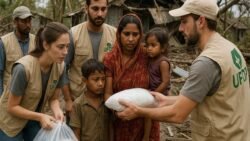 Disaster Relief and Emergency Response – How UFDP Supports Affected Families on the Ground
Disaster Relief and Emergency Response – How UFDP Supports Affected Families on the Ground
Education as the Key to Long-Term Empowerment
Education is widely recognized as a transformative tool that opens doors to opportunities and lifelong growth. Projects in this field focus on both formal and non-formal education, ensuring that children, youth, and adults have equal access to quality learning. Initiatives provide digital literacy, scholarships, and mentorship programs to bridge the educational gap for marginalized communities. According to UNESCO, inclusive education not only builds knowledge but also nurtures critical thinking, leadership, and social responsibility. At whosapp.co.za, the mission is to encourage lifelong learning that prepares individuals for meaningful participation in society and the workforce. With the rise of technology, digital tools and online platforms are integrated into education programs, ensuring that even rural students can gain skills relevant for the global economy. These efforts empower people to challenge cycles of poverty, build self-confidence, and create pathways for upward mobility.
Livelihood Projects Driving Economic Independence
Sustainable livelihoods are critical for lifting individuals and families out of poverty. Livelihood projects provide skills development in trades, small business training, and access to resources that enable entrepreneurship. Communities benefit from initiatives that support agriculture, handicrafts, and digital entrepreneurship, opening new income-generating avenues. Partnerships with microfinance institutions and local cooperatives provide financial access for small entrepreneurs who often lack credit support. Reports from the International Labour Organization highlight how promoting decent work and income security is key to reducing inequalities. WhosApp integrates technology to connect people with job opportunities, business markets, and skill-building resources, ensuring they remain competitive in a fast-changing economic environment. These projects also empower women and youth, who often face additional barriers to employment, giving them tools to achieve independence and contribute actively to community growth and resilience.
Human Rights Advocacy and Social Justice
Human rights are the foundation of dignity, equality, and justice. Advocacy projects work to raise awareness, educate citizens about their rights, and create platforms where vulnerable groups can seek protection. Many communities face challenges such as discrimination, gender-based violence, and lack of access to legal resources. Initiatives guided by principles from the Office of the High Commissioner for Human Rights focus on protecting freedoms, ensuring accountability, and fostering participation in decision-making. WhosApp emphasizes the role of human rights education in building strong, just societies. Campaigns on equality, anti-discrimination, and justice are combined with support networks that provide counseling and legal aid to those affected. By safeguarding fundamental freedoms and ensuring social inclusion, these projects lay the groundwork for peaceful and resilient communities. Empowering people to claim their rights transforms not only individuals but also builds stronger, more equitable societies aligned with the values of democracy and fairness.

